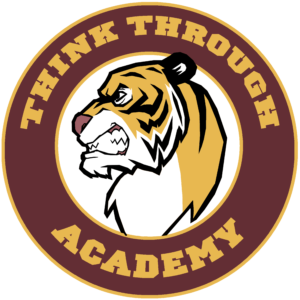MATHEMATICS
The student will become proficient in Arizona’s College and Career Ready Standards
Algebra 1: Prerequisite: Assessment Placement, Grade 1, 1 Quarter –.5 Credit
Courses include the study of properties and operations of the real number system; evaluating rational algebraic expressions; solving and graphing first degree equations and inequalities; translating word problems into equations; operations with and factoring of polynomials; and solving simple quadratic equations.
Algebra 2: Prerequisite: Pass Algebra 1ª, Quarter –.5 Credit
Course generally covers the study of properties of the real number system and operations, evaluating rational algebraic expressions, solving and graphing first degree equations and inequalities, translating word problems into equations, operations with and factoring of polynomials, and solving simple quadratics.
Geometry 1: Prerequisite: Pass Algebra 1B, 1 Quarter –.5 Credit
Course, emphasizing an abstract, formal approach to the study of geometry, typically include topics such as properties of plane and solid figures; deductive methods of reasoning and use of logic; geometry as an axiomatic system including the study of postulates, theorems, and formal proofs; concepts of congruence, similarity, parallelism, perpendicularity, and proportion; and rules of angle measurement in triangles.
Geometry 2: Prerequisite: Pass Geometry 1, 1 Quarter –.5 Credit
Course, emphasizing an abstract, formal approach to the study of geometry, typically include topics such as properties of plane and solid figures; deductive methods of reasoning and use of logic; geometry as an axiomatic system including the study of postulates, theorems, and formal proofs; concepts of congruence, similarity, parallelism, perpendicularity, and proportion; and rules of angle measurement in triangles.
Algebra 3: Prerequisite: Pass Geometry 2, 1 Quarter –.5 Credit
Course topics typically include field properties and theorems; set theory; operations with rational and irrational expressions; factoring of rational expressions; in-depth study of linear equations and inequalities; quadratic equations; solving systems of linear and quadratic equations; graphing of constant, linear, and quadratic equations; properties of higher degree equations; and operations with rational and irrational exponents.
Algebra 4: Prerequisite: Pass Algebra 2ª, 1 Quarter –.5 Credit
Courses review and extend algebraic concepts for students who have already taken Algebra II. Course topics include (but are not limited to) operations with rational and irrational expressions, factoring of rational expressions, linear equations and inequalities, quadratic equations, solving systems of linear and quadratic equations, properties of higher degree equations, and operations with rational and irrational exponents. The courses may introduce topics in discrete math, elementary probability and statistics; matrices and determinants; and sequences and series.
Business Math 1: Prerequisite: Pass Algebra 2B, 1 Quarter –.5 Credit
Courses reinforce general math skills, emphasize speed and accuracy in computations, and use these skills in a variety of business applications. Business Math courses reinforce general math topics (e.g., arithmetic, measurement, statistics, ratio and proportion, exponents, formulas, and simple equations) by applying these skills to business problems and situations; applications might include wages, hourly rates, payroll deductions, sales, receipts, accounts payable and receivable, financial reports, discounts, and interest.
Business Math 2: Prerequisite: Pass Business Math 2, 1 Quarter –.5 Credit
Courses teach and have students apply algebra concepts to a variety of business and financial situations. Applications usually include income, insurance, credit, banking, taxation, stocks and bonds, and finance.
Trigonometry: Prerequisite: Pass Algebra 2B, 1 Quarter –.5 Credit
Courses prepare students for eventual work in calculus and typically include the following topics: trigonometric and circular functions; their inverses and graphs; relations among the parts of a triangle; trigonometric identities and equations; solutions of right and oblique triangles; and complex numbers.
Pre-Calculus: Prerequisite: Trigonometry, 1 Quarter –.5 Credit
Courses include the study of derivatives, differentiation, integration, the definite and indefinite integral, and applications of calculus. Typically, students have previously attained knowledge of pre-calculus topics (some combination of trigonometry, elementary functions, analytic geometry, and math analysis).
Probability and Statistics: Prerequisite: Algebra 2A, 1 Quarter –.5 Credit
Courses introduce the study of likely events and the analysis, interpretation, and presentation of quantitative data. Course topics generally include basic probability and statistics: discrete probability theory, odds and probabilities, probability trees, populations and samples, frequency tables, measures of central tendency, and presentation of data (including graphs). Course topics may also include normal distribution and measures of variability.






